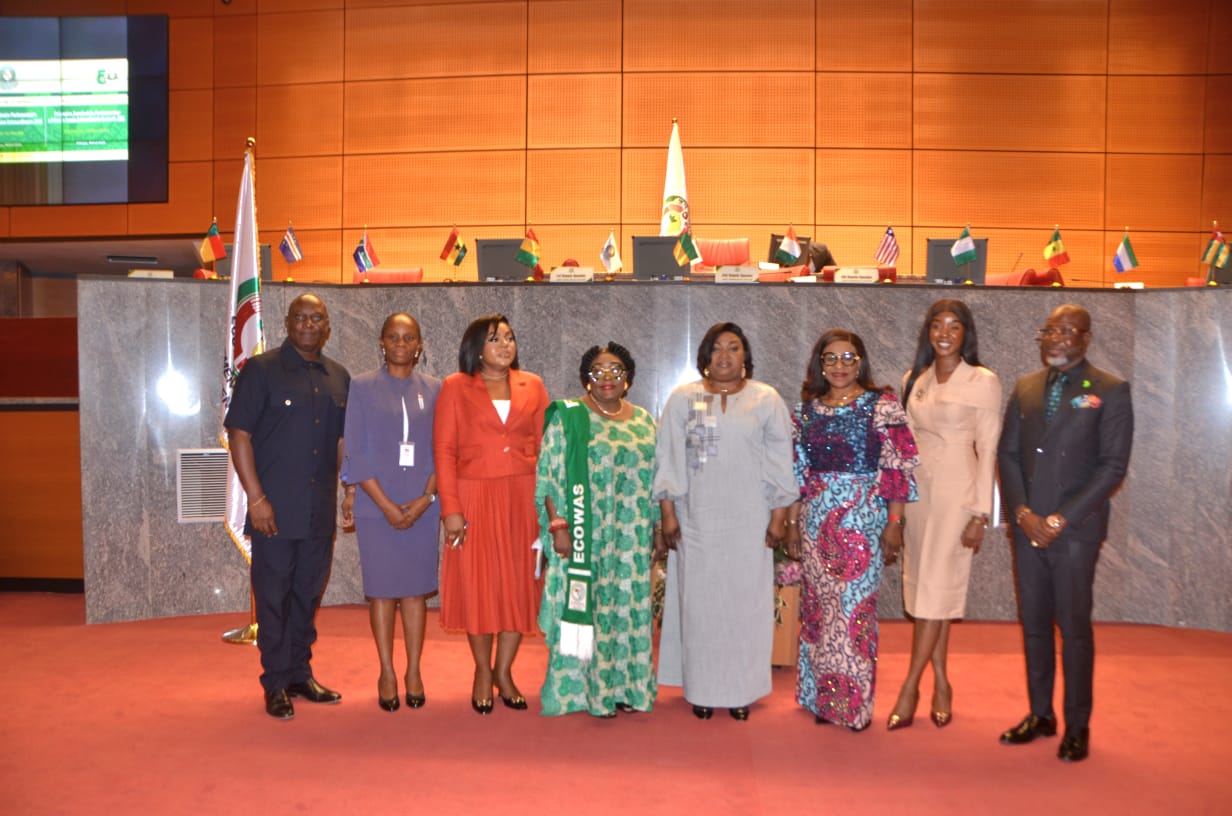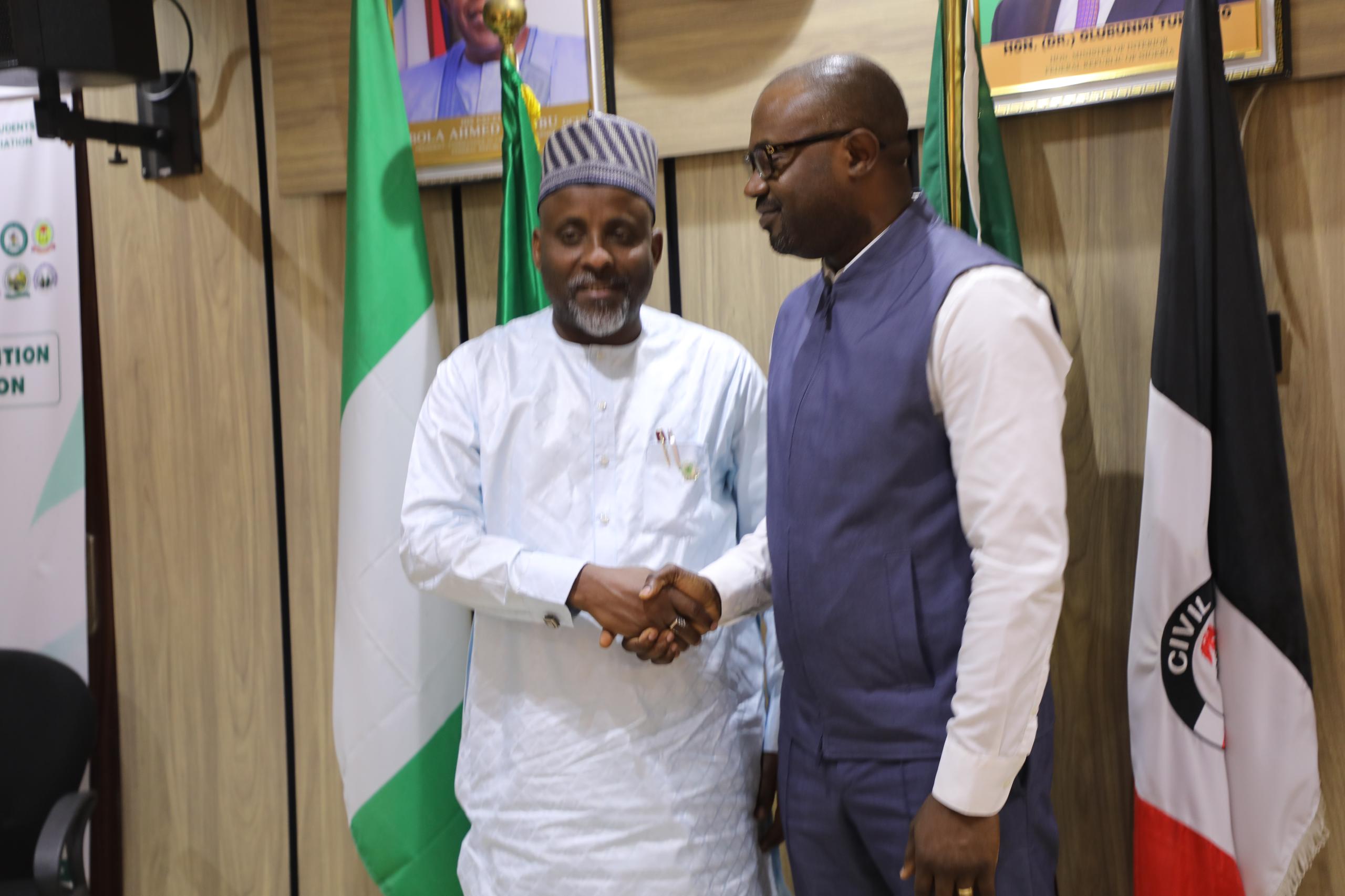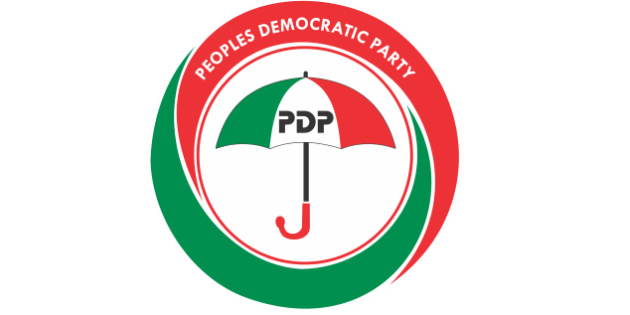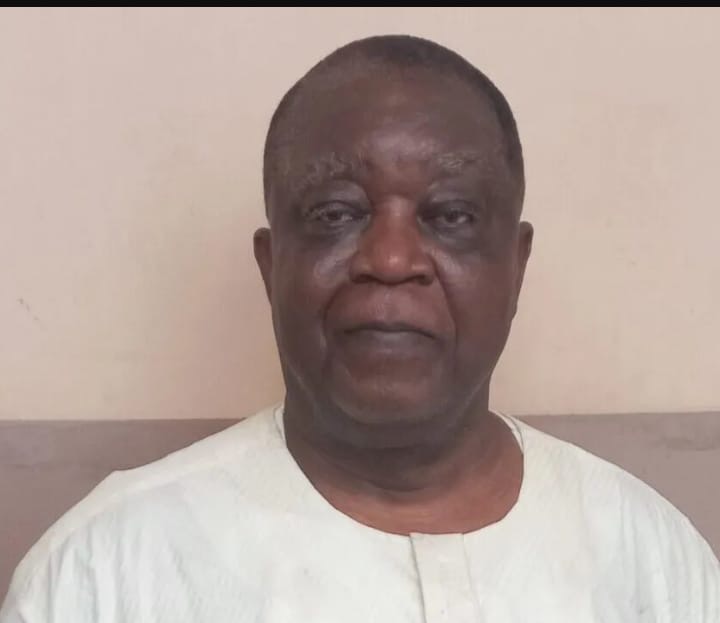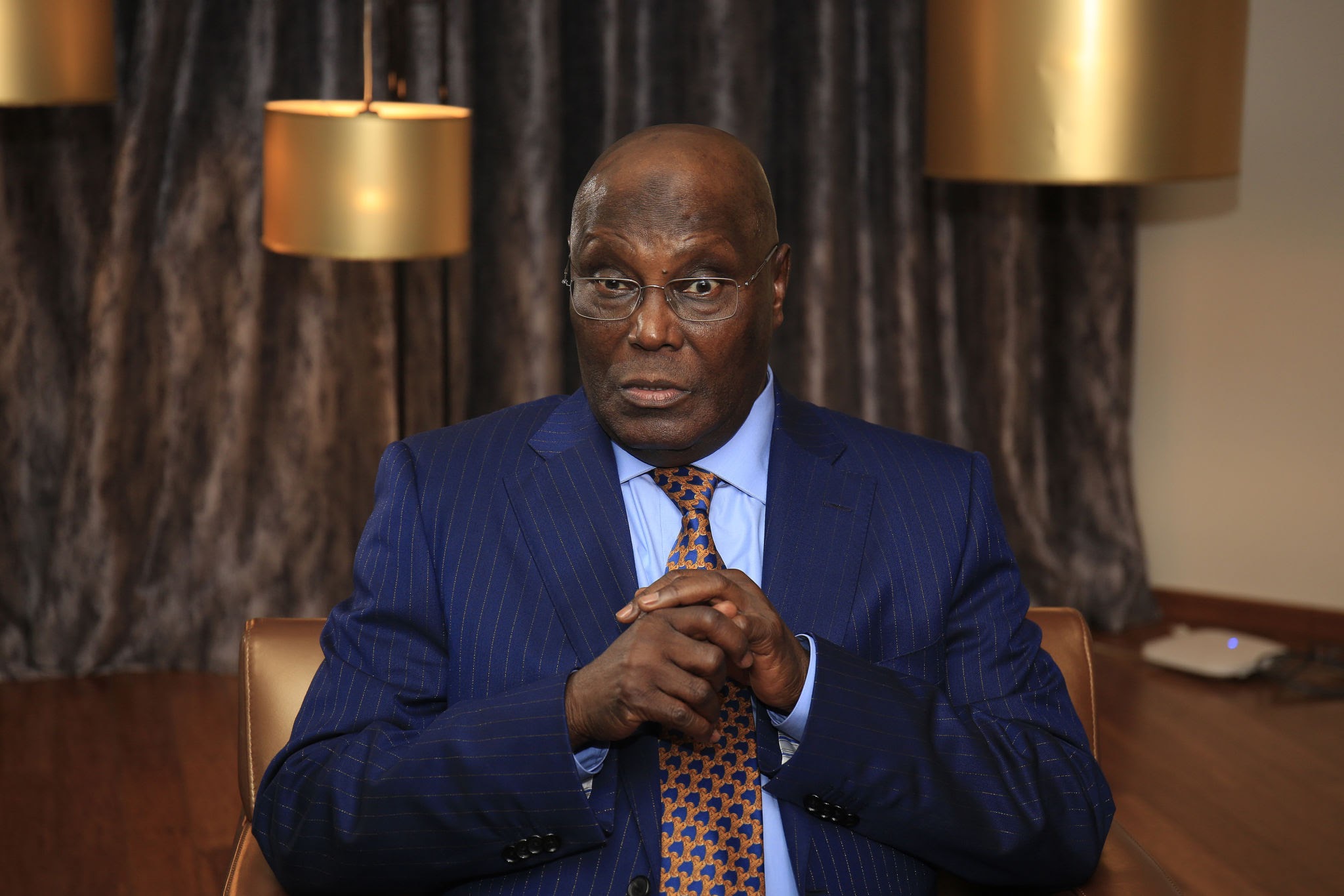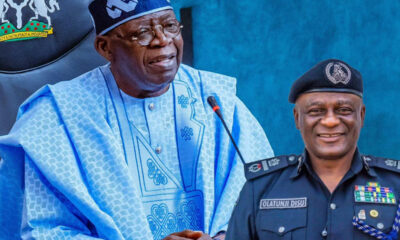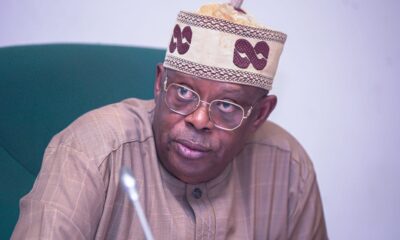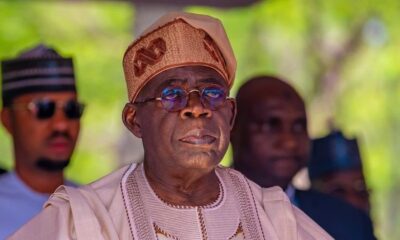National News
May Day: Tinubu acknowledges economic hardship as Labour submits 20-Point demand

President Bola Tinubu has acknowledged the severe economic hardship confronting Nigerians, citing escalating living costs, hunger, unemployment, insecurity, and families’ growing inability to make ends meet.
His admission coincided with the submission of a 20-point demand by Organised Labour to the Federal Government, aimed at addressing worsening socio-economic conditions and a surge in violence nationwide.
Speaking during the Workers’ Day commemoration on Thursday at Eagle Square, Abuja, the President, represented by the Minister of Labour and Employment, Muhammad Maigari Dingyadi, described the prevailing challenges as dire and pressing, assuring Nigerians of his administration’s determination to confront them directly. He reaffirmed his government’s commitment to policies focused on job creation, poverty alleviation, economic growth, and the protection of vulnerable groups.
Tinubu emphasised the need to create a work environment in which every Nigerian worker feels safe, valued, and empowered to contribute to national development. “I am fully aware of the peculiarities of the economic hardship Nigerians are experiencing, rising costs of living, hunger, insecurity, unemployment, and the loss of livelihoods. These are real challenges, and they demand concrete solutions, which I am committed to pursuing,” he said.
While noting that economic difficulties are a global phenomenon, the President stated that their impact has been particularly harsh in Nigeria. He assured that his administration is implementing targeted programmes designed to alleviate poverty, create employment, and promote inclusive economic policies. Beyond economic growth, he called for a restoration of civic space through transparency, inclusiveness, and constructive dialogue, while safeguarding workers’ rights.
President Tinubu further announced Nigeria’s readiness to join the International Labour Organization’s Global Coalition for Social Justice, an initiative focused on job creation, human dignity, social protection, sustainable enterprises, reducing inequality, and skills development, all aligned with his Renewed Hope Agenda.
Delivering her remarks, the Minister of State for Labour and Employment, Nkeiruka Onyejeocha, who stood in for Minister Dingyadi, said the May Day celebration was more than ceremonial; it served as a moment for sober reflection and renewed solidarity. She acknowledged the biting economic strain on citizens, including inflation, unemployment, and growing inequality.
In response, the Nigeria Labour Congress (NLC) and Trade Union Congress (TUC), speaking on behalf of Organised Labour, presented a comprehensive 20-point demand to the Federal Government. Chief among them was a call for an end to what they termed unconstitutional actions in Rivers State and the restoration of civil liberties. They also demanded an immediate wage adjustment to reflect present economic realities and clarity regarding personal income tax matters.
Other demands included the immediate implementation of a previously agreed reduction in telecommunications tariffs, a living wage, fairer taxation policies, enhanced labour protections, and prioritisation of essential public services. Labour further demanded the resolution of the ongoing spate of killings and violence plaguing various parts of the country.
Additional requests included halting the indiscriminate registration of trade unions in already-unionised sectors, settlement of outstanding allowances, pensions, and gratuities, reinstatement of gratuity payments, and an increase in retirement age for all public servants to align with that of judges, healthcare professionals, and teachers.
The unions also proposed an upward review of minimum pensions in line with inflation, automatic pension adjustments, a comprehensive review of the electricity privatisation exercise, and an end to dehumanising verification procedures for public servants.
NLC President Joe Ajaero and his TUC counterpart Festus Osifo jointly stated that the 2025 Workers’ Day celebration comes at a time of grave national challenges threatening democracy and unity. They cited deepening insecurity, impunity in governance, and blatant disregard for constitutional principles.
The Labour leaders condemned the government’s failure to protect lives and property, highlighting continued killings in communities such as Uromi, Eha-Amufu, Adani, Zamfara, Bokkos, and Riyom in Plateau State. They also expressed alarm over the reported emergence of a new terror sect, the Mahmuda group, in the Middle Belt.
On the economy, Ajaero and Osifo painted a grim picture, stating that key macroeconomic indicators had deteriorated, with inflation reaching 33.69 per cent and food inflation exceeding 40 per cent. They decried the depreciation of the recently proposed N70,000 minimum wage, which they claimed now holds real value equivalent to less than N15,000 compared to 2019.
They noted that unemployment remains high, underemployment is widespread, and over 60 multinational companies have exited Nigeria since 2023 due to the challenging business climate. The unions criticised the government’s reliance on economic prescriptions from international institutions such as the World Bank and the IMF, warning that these would further entrench poverty and suffering.
Labour called for urgent reforms to revive local manufacturing, protect existing jobs, and strengthen the real sector. They demanded immediate measures to address high production and energy costs, noting that power challenges and soaring fuel prices have led many industries to allocate as much as 60 per cent of their expenses to diesel.
They argued that Nigeria’s economy faces deep-rooted fiscal and monetary challenges, with worsening inflation, poverty, hunger, and joblessness. The Labour leaders insisted that no statistical presentation could conceal the lived reality of economic hardship experienced by millions of Nigerians.
In conclusion, they urged Nigerian workers and citizens to remain vigilant, proactive, and united in defending democracy, justice, and workers’ rights. They reiterated that the country belongs to all its citizens and must be safeguarded from misrule and exploitation.
-

 Feature1 day ago
Feature1 day agoBiography of Tunji Disu, the newly appointed Inspector-General of Police
-
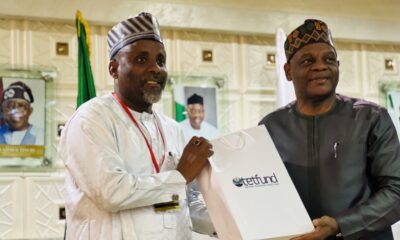
 Uncategorized2 days ago
Uncategorized2 days agoNUJ partners TETFUND on improved educational development, seek more funding for sector
-

 National News1 day ago
National News1 day agoBREAKING: Tinubu removes IGP Egbetokun, names successor
-
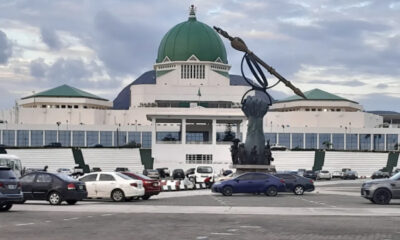
 Uncategorized2 days ago
Uncategorized2 days agoBREAKING :Nass shifts plenary Resumption to March 5
-
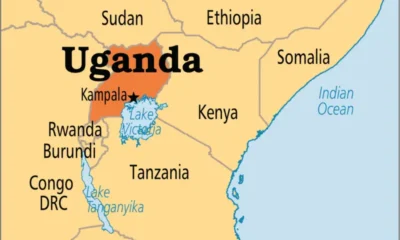
 World News1 day ago
World News1 day agoPolice arrest two women for kissing in public in Uganda
-

 News2 days ago
News2 days agoFIFA proposes one-minute rule for injured players to curb time-wasting
-
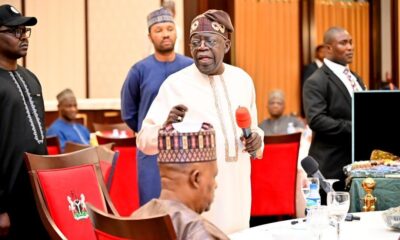
 News2 days ago
News2 days agoNigeria emerging stronger, best yet to come – Tinubu
-

 News2 days ago
News2 days agoNigerian Army thwarts ambush, kills five suspected Lakurawa terrorists in Kebbi

